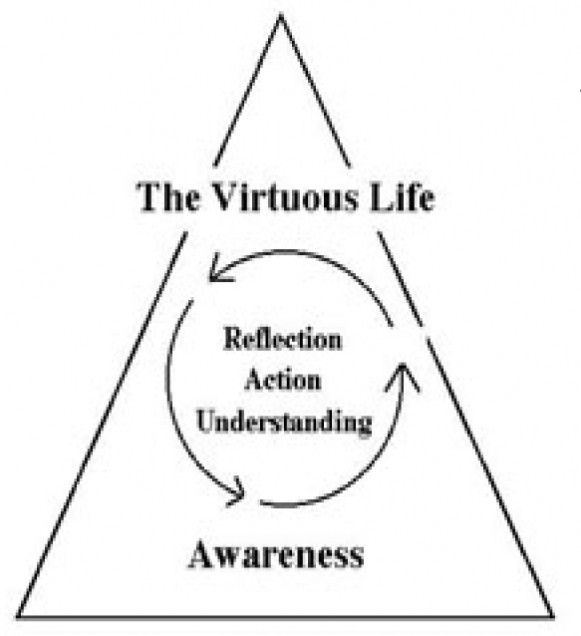Lesson Plans
Internalizing Virtue: How It’s Done
Karen E. Bohlin
Awareness is created as educators and others explain and define virtues, as a means of building a common language and shared character goals for the school community. Students become aware that respect, kindness, and diligence, for example, matter when teachers use these words and remind students of the importance of these virtues to both their intellectual and their personal development.
Understanding of virtue is awakened when students experience that “A-ha!” moment and realize that living virtuously and making wise choices contributes to personal happiness and the happiness of others. Understanding is enlightened through stories, poetry, images, music, film, and examples of lives past and present. Understanding heightens students’ desire to lead a virtuous life; to use their time, talent, and energy well; and to make wise choices.
Action enables students to build good habits. We learn by doing. As Aristotle notes, “[Men] become builders by building and lyre-players by playing the lyre; so too we become just by doing just acts…brave by doing brave acts.” Action is about putting virtue into practice.
Reflection involves thinking about choice and action. Was it a good or a bad decision? Why? What would we do differently next time? Reflection helps us develop the self-knowledge essential to internalizing virtue. It cultivates moral reasoning.
Virtues are those good habits of mind, heart, and action that enable us to choose and act well. Fostering virtue — helping students to lead flourishing lives — is at the heart of character education.
Why the Circle Inside the Triangle?
 Internalizing virtue isn’t just about acquiring a set of habits. It’s about gradually gaining wisdom — acting and then reflecting on what we’ve done, learning from our mistakes, and coming to a greater understanding of how to live a life shaped by such qualities as compassion, respect, and honesty.
Internalizing virtue isn’t just about acquiring a set of habits. It’s about gradually gaining wisdom — acting and then reflecting on what we’ve done, learning from our mistakes, and coming to a greater understanding of how to live a life shaped by such qualities as compassion, respect, and honesty.
- Our understanding informs our actions.
- Our actions give us reason to reflect.
- These reflections strengthen our understanding of virtue and our commitment to act accordingly.
Adapted from Building Character in Schools Resource Guide, Appendix C. San Francisco: Jossey-Bass, 2001.

